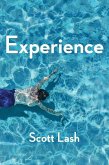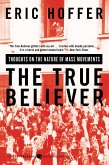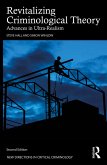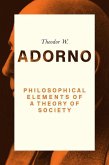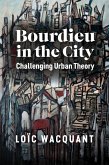This book is a radical plea for the centrality of experience in the social and human sciences. Lash argues that a large part of the output of the social sciences today is still shaped by assumptions stemming from positivism, in contrast to the tradition of interpretative social enquiry pioneered by Max Weber. These assumptions are particularly central to economics, with its emphasis on homo economicus, the utility-maximizing actor, but they have infiltrated the other social sciences too. Lash argues for a social sciences based not in positivism s utilitarian a priori but instead in the a posteriori of grounded and embedded subjective experience. His wide-ranging account starts from considerations of ancient experience via Aristotle s technics, continues through a politics of Hannah Arendt s a posteriori public sphere and concludes with the contemporary with technological experience, on the one hand, and with Chinese post-ontological thought, in which the ten thousand things themselves are doing the experiencing, on the other. This original book by a leading social and cultural theorist will be of great interest to students and scholars in sociology, cultural studies and throughout the social sciences.
Dieser Download kann aus rechtlichen Gründen nur mit Rechnungsadresse in D ausgeliefert werden.
'In this book, Scott Lash analyses the diverse meanings of a concept key to the social sciences and provides a hermeneutic lens through which the languages of sociology, anthropology, technology and art illuminate one another. A broadening of perspective, engaging with Chinese cosmology at the end of the book, distinguishes Experience as a truly global account of our age.'
Roberto Esposito, Scuola Normale Superiore, Pisa
'In his remarkable book, Scott Lash weaves his way through eras and cultures to construct a possible theory - transcultural and transhistorical - of what most defies theory. The "empirical" option he gradually develops can indeed, after James and Arendt, erect experience as philosophy's decisive issue.'
François Jullien, Fondation maison des sciences de l'homme, Paris
"This is a book of amazing scholarly scope. It stands out as an extremely serious study that does not pander to fads and fashions nor seek approval from readers. Here is a major statement that will surprise many who think they are familiar with Lash's thought."
Philip Smith, Yale University
Roberto Esposito, Scuola Normale Superiore, Pisa
'In his remarkable book, Scott Lash weaves his way through eras and cultures to construct a possible theory - transcultural and transhistorical - of what most defies theory. The "empirical" option he gradually develops can indeed, after James and Arendt, erect experience as philosophy's decisive issue.'
François Jullien, Fondation maison des sciences de l'homme, Paris
"This is a book of amazing scholarly scope. It stands out as an extremely serious study that does not pander to fads and fashions nor seek approval from readers. Here is a major statement that will surprise many who think they are familiar with Lash's thought."
Philip Smith, Yale University



